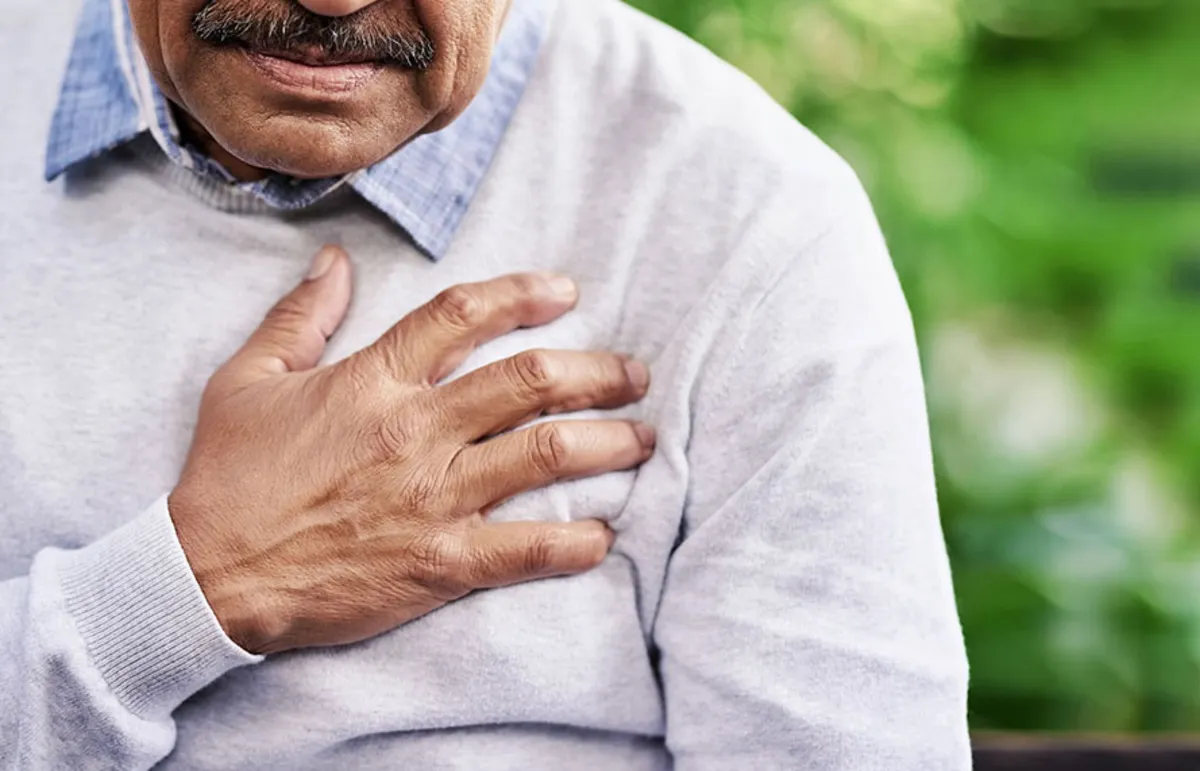
A 59-year-old man recently arrived at the Peking University First Hospital in Beijing for a routine procedure, but his day took a dramatic turn when he experienced severe chest pain and shortness of breath. This alarming incident occurred just four months after he had undergone surgery to remove cancerous tumors from his bladder. Despite his struggles, he put on a brave face around his family and avoided discussing his health. However, anxiety over a potential cancer recurrence haunted him, disrupting his sleep and well-being.
Doctors diagnosed him with takotsubo cardiomyopathy, often referred to as broken heart syndrome. This rare, stress-induced heart condition, primarily observed in women, has gained attention due to a recent study published in the Journal of the American Heart Association, which reveals that men may face a higher mortality risk when diagnosed with this condition.
Takotsubo cardiomyopathy, or TC, is characterized by extreme emotional or physical stress that can cause the heart muscle to become temporarily weakened. The condition can arise from various stressors, including the loss of a loved one, winning a lottery, or even lifting a heavy object. When this happens, stress hormones flood the heart, causing a portion of it to “freeze” and struggle to pump blood effectively. Symptoms mimic those of a heart attack, such as chest pain, irregular heartbeat, and palpitations.
A comprehensive study analyzing data from nearly 200,000 patients hospitalized for TC in the United States from 2016 to 2020 uncovered startling findings. While women comprised a staggering 83% of the cases, men exhibited a mortality rate of 11.2%, more than double that of women. Dr. Mohammad Reza Movahed, a clinical professor of medicine at the University of Arizona and coauthor of the study, emphasized the importance of understanding the stark differences between male and female patients with TC.
“The differences between men and women are a very striking finding,” Movahed stated. He underscored the need for further investigation into why men are more susceptible to severe outcomes from this condition.
The discrepancies in mortality rates between men and women diagnosed with TC remain poorly understood, particularly as they contradict trends observed in other heart diseases. One prevailing theory suggests that hormonal differences could play a significant role. During stressful situations, the adrenal glands release catecholamines, which are meant to elevate blood pressure and heart rate. However, excessive levels can stun heart tissue, leading to TC. Research indicates that men may produce higher levels of catecholamines than women, potentially resulting in more severe cases of TC.
Moreover, estrogen, a hormone prevalent in women, might offer a protective effect on the cardiovascular system, helping to manage the influx of catecholamines and mitigating the risk of severe complications from TC, according to Dr. Louis Vincent, a noninvasive cardiology research fellow at the University of Miami.
Social factors also contribute to the observed gender differences in TC diagnosis and outcomes. Dr. Deepak Bhatt, a cardiologist and director at Mount Sinai Fuster Heart Hospital, pointed out that many physicians associate takotsubo syndrome primarily with women, potentially leading to missed diagnoses in male patients. This misdiagnosis can delay treatment, resulting in worse health outcomes.
Furthermore, men may tend to seek medical attention later in the course of their illness, often believing their symptoms are manageable. Dr. Alejandro Lemor, an assistant professor of interventional cardiology, explained that complications from TC can include blood clots, stroke, cardiac arrest, and heart failure. However, early detection and treatment can significantly reduce these risks and facilitate recovery.
While Movahed's research considered various factors such as age, race, income, and chronic illnesses, it lacked comprehensive patient data on comorbid conditions, including a history of stroke or Covid-19 infections. The study focused only on hospitalized patients, leaving out those who received outpatient care or died post-discharge from TC-related complications.
To gain a clearer understanding of the mortality differences between men and women and to refine treatment approaches, researchers like Vincent emphasize the necessity of larger, more detailed datasets.
Individuals experiencing sudden, severe chest pain or shortness of breath should treat these symptoms as medical emergencies. Dr. Bhatt cautioned against self-diagnosing or delaying care. “It’s not a time to tough it out at home,” he advised. Immediate action can be crucial in preventing irreparable damage to the heart.
Symptoms following physical stressors should also not be ignored, as these are common triggers for TC in men. Managing chronic stress through daily practices such as meditation or exercise can enhance overall cardiovascular health and provide coping strategies during unexpected stressors.
Takotsubo cardiomyopathy remains a complex and often misunderstood condition, particularly among men. With a higher mortality rate and significant implications for treatment, increased awareness and research are vital to improving outcomes for all patients affected by this silent yet potentially deadly syndrome.